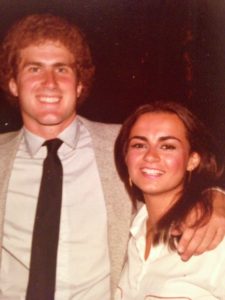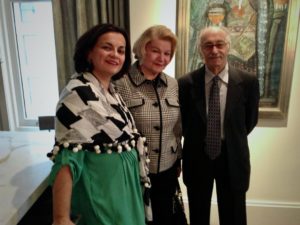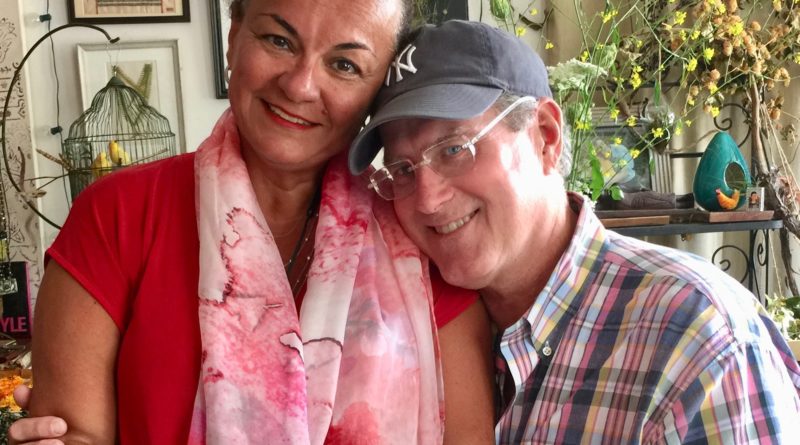The Muslim Ban and Me: One Iranian American’s Story By Noushin Darya Framke
Back in 2010 I wrote this opening line in a Horizons magazine article: “When I came to the United States in 1978 as a college student, I didn’t know I wasn‘t ‘white’.” A lot has changed in the American immigration story since then, not the least of which is the closing of the gates for immigrants, refugees and asylum seekers coming specifically from my part of the world thanks to what’s known as “The Muslim Ban.” Even though I am from the minority Christian community in Iran, I come from a Muslim culture and take the Trump ban very personally.
Going by the numbers, the ban that Donald Trump signed as an executive order in the first week of his presidency and which in its third iteration was upheld by the Supreme Court, affects Iranians more than any other group of people. Jason Rezaian, the Iranian-American Washington Post correspondent who was held in an Iranian prison for almost two years, recently wrote an opinion column entitled, “Call Trump’s travel ban what it is: An Iran ban.” He wrote, “If you look at the numbers, Trump’s travel ban could be described more accurately as an ‘Iran ban.’ Of the total of those likely to be affected, Iranians make up the majority.”
He further explains, “Which country is most affected? Based purely on population, it is Iran. …there are as many as one million Iranian-Americans, and many have relatives in Iran who may now not be able to emigrate or visit. …As for Iranian Americans, what are we supposed to take away from all of this? There are a million of us in this country. If our relatives in Iran are automatically suspect, are we not as well? Can we really consider ourselves to be equal citizens?”
Here’s the thing: unless I tell people I am from Iran, they never guess it. I’ve been taken for Greek or Italian or other Mediterranean origins, but never as someone from Iran. I don’t have a “foreign” accent, and going back to that line in my article from 2010, you wouldn’t know I am not “white.” So when I’m asked what kind of name my name is – and I’m always asked – my answer is not what people expect. It used to be that there was surprise followed by “how interesting”, but now there’s shock, silence and sometimes even visible recoil, like I just revealed I had a contagious disease. It’s as though in the forty years since I arrived here, Iran and Iranians have been on an unstoppable slide down into the abyss. Or as I thought in my naiveté, losing our status as “white.”
 So what does it mean to be “white” in America if it’s not people like myself who came here from Caucasia? My mother’s family, after all, were Armenians from the Caucasus Mountains where that word “Caucasian” comes from. In the years since I arrived here as a college freshman in 1978, I’ve learned that race is a social construct, one that was used to justify slavery, and the reason for the Civil War. Because the social construct has nothing to do with the color of skin, it is possible for people to move from one category to another. I’ve learned that people who were not “white” once are now considered “white,” such as Catholics and Jews.
So what does it mean to be “white” in America if it’s not people like myself who came here from Caucasia? My mother’s family, after all, were Armenians from the Caucasus Mountains where that word “Caucasian” comes from. In the years since I arrived here as a college freshman in 1978, I’ve learned that race is a social construct, one that was used to justify slavery, and the reason for the Civil War. Because the social construct has nothing to do with the color of skin, it is possible for people to move from one category to another. I’ve learned that people who were not “white” once are now considered “white,” such as Catholics and Jews.
I’ve also learned that actually, the definition of “white” has more to do with your social location and your access to power. So in a strange way, I am less “white” in today’s America than I was in the America of 1978 when I first stepped foot on this continent. What I am saying is just as Catholics and Jews became “white” over the 60s and 70s, my social location went down a deep spiral.
I’ve just passed the 40th anniversary of my “coming to America.” Because I arrived before the Iranian Revolution, albeit only months before the Shah fled for his life, I landed here in what still felt like walking into a dream come to life. I grew up in American schools, including Tehran’s Community School, which was a Presbyterian mission school. I watched American movies and TV, followed American music charts and dreamed of coming to America for college one day. In August 1978, I landed at National Airport in Washington, D.C. as if I was landing in a Hollywood movie. It was all so perfect and so exciting to finally be here and I’ve kept the blue Samsonite carry-on case as a memento by which to remember that “perfect time.”
Over the years, as events unfolded, I went from a privileged Iranian student living at a dorm 4 blocks from the White House, to an accidental immigrant who never wanted to stay, but lost her country to revolution and realized she had to stay. I went from being a student from an exotic faraway place to being an immigrant from a supposed “terrorist state” out to harm Americans. It was a shocking and horrible awakening. And Iran, by the way, has never sent terrorists here as our “ally” Saudi Arabia has.
I realized in the end that actually, I was never considered “white” even if I looked and sounded “white.” Even though I became a U.S. citizen in 1986, I was never going to lose the connection to a pariah state, a state that through my lens is one of the oldest on the planet and has a rich culture and history. Every year the relations between my newly adopted country and the country I left behind deteriorated further and further. Iran became associated with terrorists and war, culminating in the “axis of evil” speech by George W. Bush. Evil, of course, is a theological concept and has deep and wide connotations and effects that cannot be easily reversed.
Defiantly, I didn’t change my name or adopt a nickname as many of my compatriots did. Proudly, like an accidental ambassador, I always told people where I was originally from, even though it always brought on unpleasant conversations. Today though, living in Trump’s America, I am more and more exhausted from using my social encounters as teaching moments to show and tell people who Iranians really are.
 Next month, feeling trepidations about going to visit my octogenarian stepdad in Iran, for the first time I am arranging to meet him in a third country. He was here with my mother in 2012, but this time my “white” husband and I will meet up with him in Istanbul and have a weekend visit in a hotel. When I was telling my mother-in-law in Minnesota about our trip arrangements, she was surprised and said, “Oh, how come he’s not coming here?” “Because,” I said, “he can’t get a visa.” Yes, the Muslim Ban is working.
Next month, feeling trepidations about going to visit my octogenarian stepdad in Iran, for the first time I am arranging to meet him in a third country. He was here with my mother in 2012, but this time my “white” husband and I will meet up with him in Istanbul and have a weekend visit in a hotel. When I was telling my mother-in-law in Minnesota about our trip arrangements, she was surprised and said, “Oh, how come he’s not coming here?” “Because,” I said, “he can’t get a visa.” Yes, the Muslim Ban is working.
Noushin Darya Framke is a Presbyterian elder and co-editor of the new book Why Palestine Matters, the Struggle to End Colonialism. She has two adult daughters and has been married 36 years. Read her account of her 2015 trip to Iran in Justice Unbound.
Photos from top to bottom: Noushin and her husband of 36 years, 2018; Noushin Darya-Bandari and her future husband in college, 1980; Noushin Framke at her home in New York with her parents on their last trip to the U.S., 2012.

